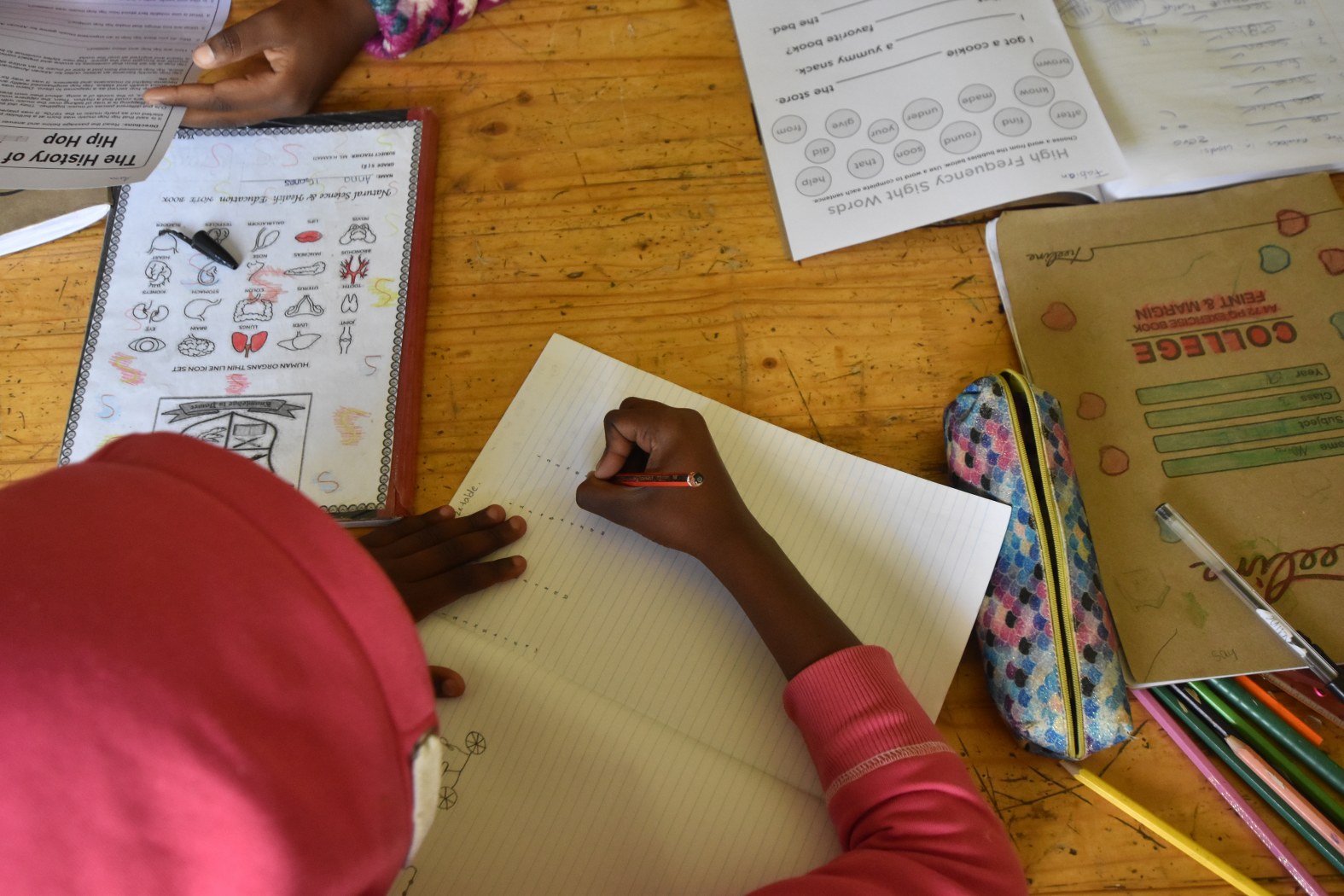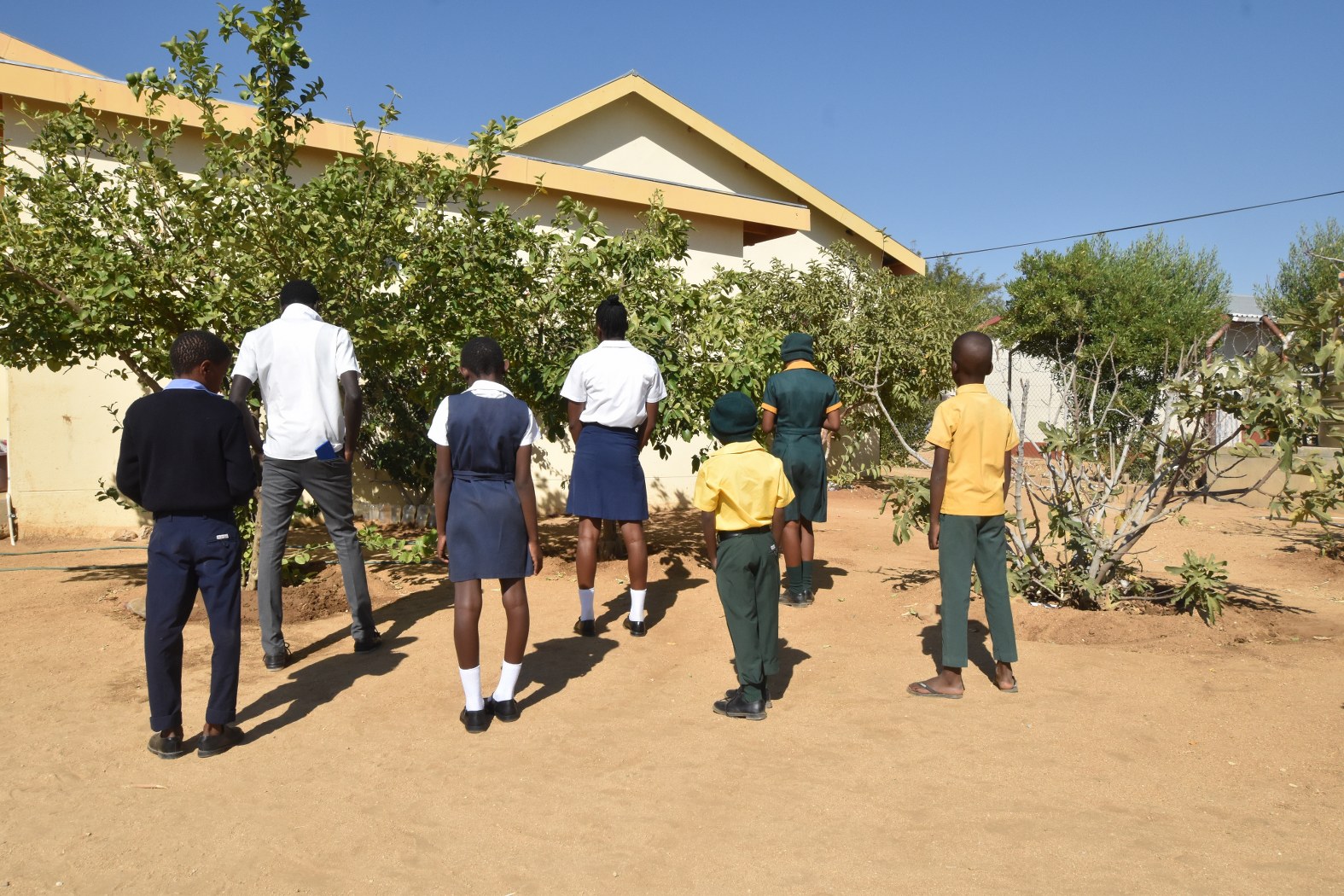Learning in the Haven – Kindergarten, School, University
In Namibia it is obligatory that all children go to school until the 7th grade or until they turn 16 years old. At the present, all of our children visit state schools, which are free of charge.
The course of a school year, which begins in January, is divided into trimesters. Between the individual trimesters are holidays and public holidays, where the children get days off school. Though before the well-earned holidays can start, exams are to be taken at the end of each trimester.
Every school has its own uniform. This is supposed to minimize the social exclusion within the school, among the students. Additionally, the sense of community is strengthened and every student valued as a person.
With the age of three our children visit kindergarten on a daily basis. There they learn how to socially communicate with children their own age and are playfully prepared for primary school. One year before starting school, in the preschool group, forerunner skills are trained as well as the basics of numbers and letters.
The choice of primary school depends on the culture of each child. In the first three primary years lessons are taught in the tribe language and the students learn how to read and write their native language. Only from the fourth-grade subjects are taught in English, as the official language of Namibia. Different from Germany, primary school takes up a course of seven years before the transition to secondary school.
Grades eight to eleven are at the S.I.!Gobs, which is within walking distance. English, Math, Science and one additional language (e.g., Khoekhoegowab, OtkiHerero, Africaans or German) are components of their daily timetable. Partially the older students have lessons in the afternoon or they visit afterschool clubs. After the eleventh grade the students have to obtain the “Junior Secondary Certificate”, if they decide to participate in twelfth grade. In the last year there is also the chance to receive the Namibia Senior Secondary Certificate (NSSC). This serves as an entitlement to the universities of Namibia.
After school, the children have the opportunity to learn a profession or to visit university. They can also take further courses through distant studies at the “Namibia College of Open Learning” (NAMCOL). Here, the students have the opportunity to improve their school-leaving qualification or work towards specific diplomas. In any and every case we support our adolescents and accompany them into their independent working-life.
Students with learning difficulties can go to the specialized school “Pioneer Boys School”, which is situated in Windhoek. At this school the children receive individual support as required. For the craft-gifted with learning difficulties there are also courses, which prepare and build up the basic foundation for a later profession. Costs arise for these courses and the accommodation in hostels, which are taken over by the Haven.
Together we try to find the best path of education for every single child. Individually, we decide with the children, which school they would like to visit and which profession they would like to follow.


